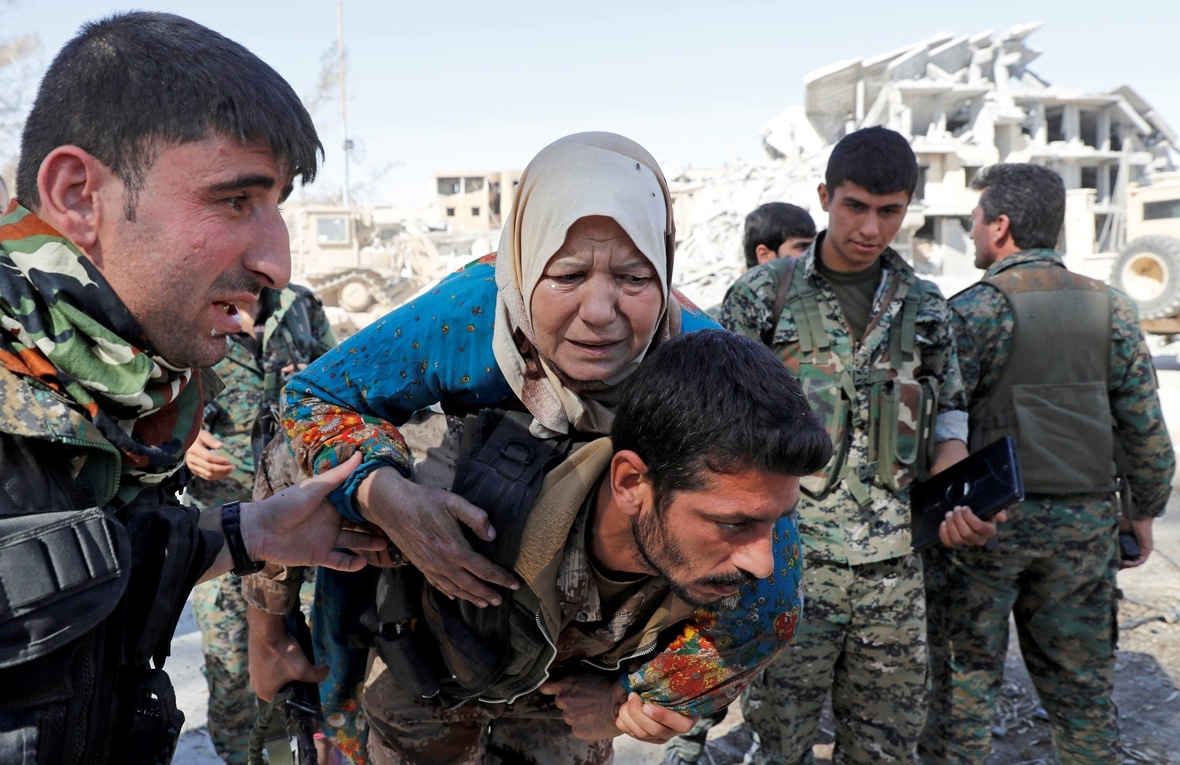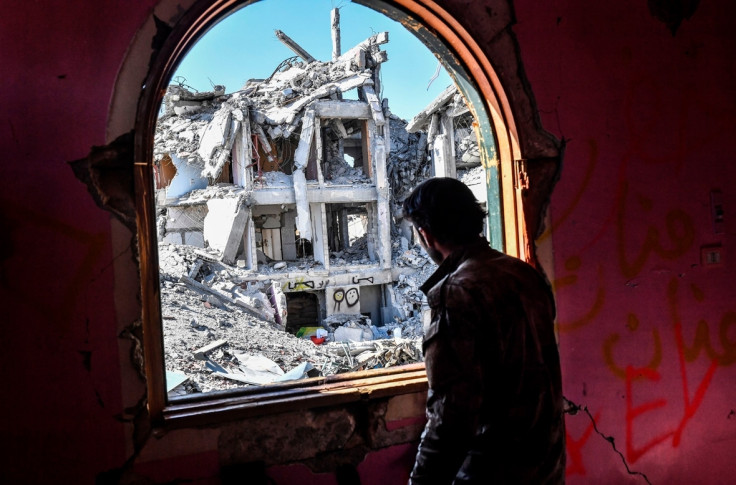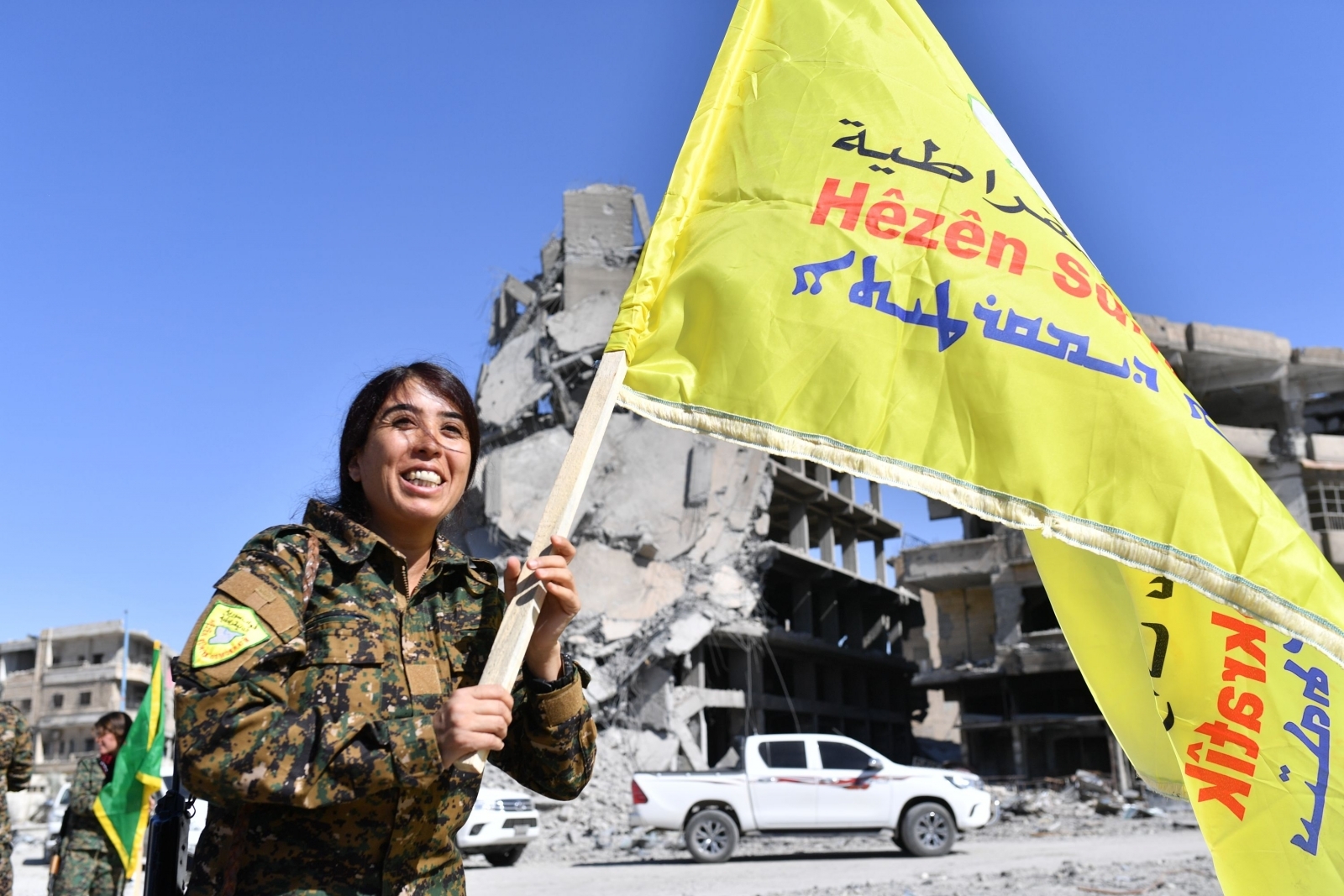Inside Raqqa after Isis: Secret bunker, unexploded bombs and decomposing bodies
Chilling photos from inside Raqqa after Syrian Democratic Forces fighters liberated the city from Islamic State militants.
Syrian Democratic Forces (SDF) fighters have begun clearing landmines, unexploded bombs and booby traps from Raqqa after they liberated the city from Islamic State (Isis/Daesh). They made several chilling finds in the city's stadium, where dozens of militants who had refused to surrender made their last stand.
Under Isis rule, the stadium served as a prison, known locally as "Point Eleven". Underneath the stadium, SDF fighters discovered a haunting network of rooms and hallways, which also served as barricades for the jihadists in their final days in the city. An SDF member who was held by the militants said few people who entered the prison ever made it out alive.









The infamous Naim (Paradise) Square was the site of public beheadings and other killings by the militants. Bodies and severed heads would be displayed there for days, mounted on posts and labelled with their alleged crimes, according to residents who later dubbed it "Hell Square". It was in Naim Square that the extremists paraded tanks and military hardware in 2014 in a chilling show of force that foretold what would come.


As they explored the city, SDF fighters came across unexploded bombs and cars stuffed with explosives, along with the charred, decomposing corpses of what they said were Isis fighters.






Although the SDF said that military operations in Raqqa have ended and that their troops have taken full control of the city, the US-led coalition cautioned that the clearing operations are continuing, saying some 100 militants may still be hiding in the city. Brett McGurk, the top US envoy for the coalition, said he was in northern Syria to prepare for the defeat of the militants. He said the United States will help in clearing explosives as well as restoring services in the city.
McGurk posted a photograph of surrendering IS militants, saying: "Once purported as fierce, now pathetic and a lost cause." He said Isis lost nearly 6,000 militants in Raqqa before surrendering in large numbers.
#ISIS lost nearly 6000 terrorists in #Raqqa, then surrendered in large numbers. Once purported as fierce, now pathetic and a lost cause. 4/6 pic.twitter.com/JV9EFywqd4
— Brett McGurk (@brett_mcgurk) October 17, 2017
It took thousands of bombs dropped by the US-led coalition and more than four months of gruelling house-to-house battles for the SDF to recapture Raqqa. The battle for the city killed more than 1,000 civilians, many of them in coalition air strikes, and displaced tens of thousands of people who face the prospect of returning to ruined homes.











In a reminder of the humanitarian catastrophe unleashed by the fighting, the international charity group Save the Children said that camps housing tens of thousands of people who fled Raqqa are "bursting at the seams". It said about 270,000 people from Raqqa are still in critical need of aid. With the high level of destruction reported in and around Raqqa, most families have nowhere to go and are likely to be in camps for months or years. The World Food Programme said it was ready to send teams as soon as the area was secure enough.
Ilham Ahmed, a senior member of the SDF political wing, said the hardest part will be administering and rebuilding Raqqa. The group has appointed a civilian administration of locals to rebuild the city, but larger questions loom. The SDF is a multi-ethnic force, but its Kurdish leadership harbours ambitions of autonomous rule over a Kurdish region in Syria that now includes the Arab-majority Raqqa, leading to concerns of a possible backlash among the city's Sunni Arab population.




Isis has lost much of its territory in Syria and Iraq this year, including its most prized possession, Mosul. In Syria, it has been forced back into a strip of the Euphrates valley and surrounding desert. It is already losing ground rapidly in Deir al-Zor, the last region where it has a significant foothold in Syria. The SDF and the Syrian government, backed by Russia and Iran, are fighting separate campaigns against the group there.






















